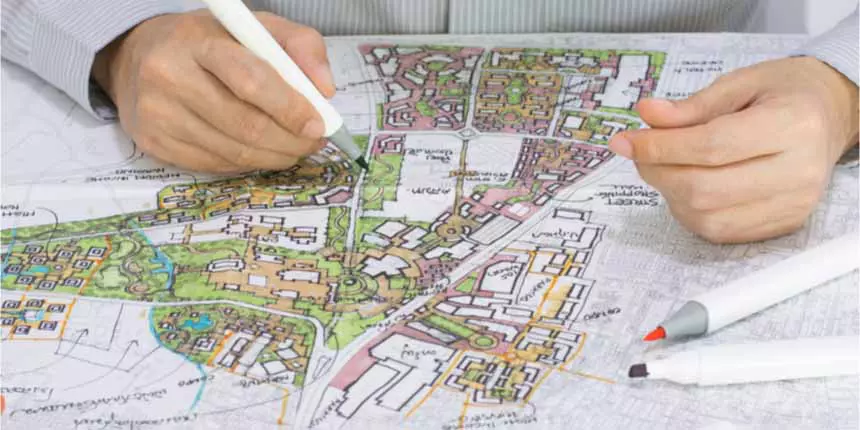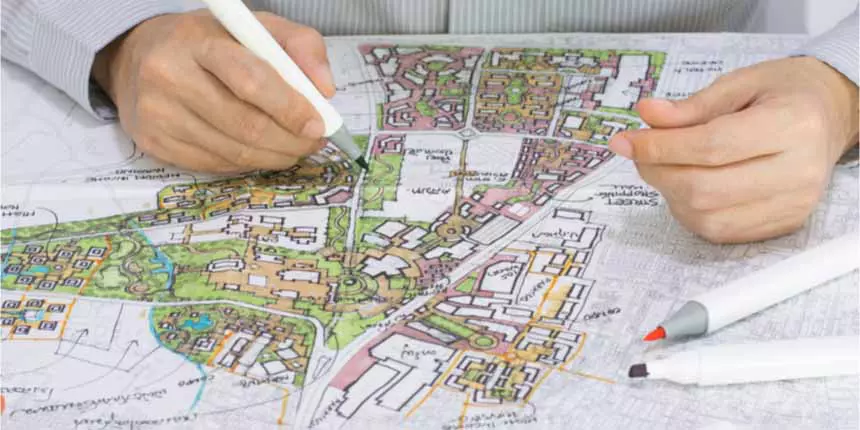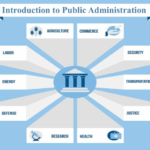From Curious Observer to City Enthusiast: My Journey Through an Urban Planning Course
Have you ever walked through a bustling city, looked at a quiet park, or even just sat in traffic, and wondered, "Why is it like this? Who decided where this road goes? Why are some neighborhoods so vibrant while others feel neglected?"
For years, those questions buzzed in my head. I’d gaze out airplane windows, seeing cities spread out like intricate tapestries, and feel a deep curiosity. I loved the energy of urban spaces, but I also saw their flaws – the endless concrete, the lack of green spaces, the disparity between gleaming skyscrapers and crumbling streets. I felt a pull, a subtle nudge, that there had to be a better way to build and manage the places we call home.
But what could I, a complete beginner with no background in architecture or engineering, possibly do about it? I thought urban planning was for seasoned professionals in hard hats, armed with blueprints and complex jargon. Little did I know, my perspective was about to get a complete overhaul, all thanks to an Urban Planning Course.
The Spark: Why Urban Planning?
Before diving into the course, my understanding of "city planning" was pretty rudimentary. I pictured people drawing lines on maps, deciding where to put new buildings. It felt cold, technical, and a bit distant from the people who actually live in these spaces.
Yet, my everyday observations kept nudging me. I saw how a poorly placed bus stop could make life difficult for commuters. I noticed how a lack of sidewalks forced people to walk in the street. I felt the collective sigh of frustration during rush hour. These weren’t just random occurrences; they were symptoms of a system, a design, that could be improved.
I realized I wasn’t just interested in buildings; I was interested in how people live within those buildings and the spaces in between. I wanted to understand the invisible forces that shape our daily routines, our interactions, and our well-being in an urban environment. That’s when I stumbled upon the idea of an Urban Planning Course. It felt like finding the missing piece of a puzzle I didn’t even know I was trying to solve.
Stepping into the Unknown: My First Urban Planning Course
Signing up for the course felt a bit like stepping onto a foreign planet. I was nervous. Would I be the only one without a design degree? Would the concepts be too advanced? My biggest fear was being overwhelmed by technical terms and complex theories.
But right from the first session, a wonderful thing happened. The instructor, a passionate urban planner with years of real-world experience, spoke in a way that immediately put everyone at ease. She didn’t start with complex equations; she started with stories. Stories about cities, about communities, about problems solved and challenges still faced.
She made it clear: an Urban Planning Course isn’t just for architects or engineers. It’s for anyone who cares about their city, their neighborhood, and the future of how we live together. That was my first "aha!" moment.
Beyond Buildings: The Real Scope of Urban Planning
What I quickly learned is that urban planning is so much more than just drawing lines on a map. It’s the invisible glue that holds a city together. It’s about:
- People: How can we design spaces that foster community, ensure equity, and enhance quality of life for everyone, regardless of their background or income?
- Environment: How do we create sustainable cities that minimize their ecological footprint, incorporate green infrastructure, and adapt to climate change? This was a huge eye-opener!
- Economy: How do we plan for economic growth that benefits all residents, creates job opportunities, and supports local businesses?
- Movement: How do we design transportation systems that are efficient, safe, and accessible, reducing reliance on single-occupancy vehicles?
- Policy & Law: Understanding the legal frameworks, zoning regulations, and community engagement processes that shape urban development.
It was like peeling back layers of an onion. Every decision about a park, a bus route, or a new housing development has a ripple effect, touching countless lives. This holistic approach, looking at the entire ecosystem of a city, was truly fascinating. I realized that learning about Urban Planning Education wasn’t just about theory; it was about understanding life itself in a modern context.
The Toolkit: Skills You Pick Up
One of the most rewarding aspects of the course was the diverse set of skills I began to develop. It wasn’t just about memorizing facts; it was about learning to think differently.
- Critical Observation: I started to "read" a city in a new way. Every street corner, every building, every public space told a story. I learned to ask: "Who is this space for? Is it working as intended? How could it be better?"
- Problem-Solving: We tackled real-world case studies, from traffic congestion in a downtown area to a lack of affordable housing in a growing suburb. It taught me to break down complex issues into manageable parts and brainstorm creative solutions.
- Mapping & Data Analysis: While I didn’t become a GIS expert overnight, I gained a fundamental understanding of how geographic information systems (GIS) are used to visualize data, identify patterns, and inform planning decisions. It felt like gaining a superpower!
- Communication & Collaboration: Urban planning is inherently collaborative. We worked in teams, presenting our ideas, defending our proposals, and learning to listen to diverse perspectives. This was crucial for understanding Community Development strategies.
- Understanding Policy: The course demystified the often-intimidating world of zoning laws, land use regulations, and public participation processes. I began to see how these legal frameworks are the backbone of any urban plan.
Challenges and Lightbulb Moments
Of course, it wasn’t all smooth sailing. There were moments when the sheer complexity of urban challenges felt overwhelming. How do you balance economic development with environmental protection? How do you ensure equitable access to resources when different groups have conflicting needs?
But these challenges often led to the most profound "lightbulb moments." I remember one particular project where we had to redesign a neglected public square. My initial ideas were purely aesthetic – more benches, prettier plants. But through the course, I learned to dig deeper. Who uses this square? What are their needs? Is it safe at night? How can it become a true community hub?
That’s when it clicked: Urban Design principles aren’t just about making things look nice; they’re about making spaces work for people, enhancing their lives, and fostering a sense of belonging. It shifted my entire perspective.
Why You Should Consider an Urban Planning Course (Even If You’re a Beginner)
If a part of you is curious about how cities work, how they can be improved, or how you can contribute to shaping the future of our urban spaces, then an Urban Planning Course might just be your next great adventure. Here’s why, especially if you’re coming in as a beginner:
1. Make a Tangible Impact
This isn’t just theoretical learning. Urban planning is about making real, tangible changes in the places we live, work, and play. Whether it’s advocating for more bike lanes, designing a new park, or shaping policies for affordable housing, you learn how to be a part of the solution. You learn the tools to help build Sustainable Cities and foster stronger Community Development.
2. Develop a Unique Perspective
Once you start learning about urban planning, you’ll never look at a city the same way again. Every street, every building, every public space will tell a story. You’ll develop a critical eye, an understanding of interconnected systems, and a unique ability to see both the big picture and the small details that make a city thrive (or struggle). This perspective is invaluable, no matter what your primary field is.
3. Unlock Diverse Career Paths
An Urban Planning Course opens doors to an incredibly wide range of career opportunities. It’s not just about becoming a city planner (though that’s a fantastic path!). You could go into:
- Urban Design: Focusing on the physical layout and aesthetics of spaces.
- Environmental Planning: Working on sustainability, green infrastructure, and climate resilience.
- Transportation Planning: Designing efficient and accessible transit systems.
- Housing & Community Development: Addressing affordable housing, neighborhood revitalization, and social equity.
- Policy & Advocacy: Working with governments or non-profits to shape urban policy.
- Real Estate Development: Understanding how planning impacts property values and development potential.
- GIS Analysis: Becoming an expert in mapping and spatial data.
The skills you gain – critical thinking, problem-solving, data analysis, communication, and understanding complex systems – are highly transferable and sought after in many industries. Learning to Study Urban Planning truly gives you a versatile skillset.
My Takeaway: More Than Just a Course
Finishing that Urban Planning Course didn’t just give me a certificate; it gave me a new pair of eyes. It transformed me from a curious observer into an engaged citizen, someone who understands the intricate dance between people, places, and policies.
I now see the world through a lens of possibilities, recognizing not just the problems in our urban environments, but also the incredible potential for positive change. It taught me that every city, no matter how chaotic it may seem, is a living, breathing entity, constantly evolving, and constantly in need of thoughtful, empathetic planning.
So, if a part of you is curious about the Future of Cities, about making a difference in your own community, or simply understanding the forces that shape our built environment, I wholeheartedly encourage you to explore an Urban Planning Course. You don’t need to be an expert to start; you just need a willingness to learn, to question, and to imagine a better way. It might just be one of the most rewarding journeys you ever embark on.



